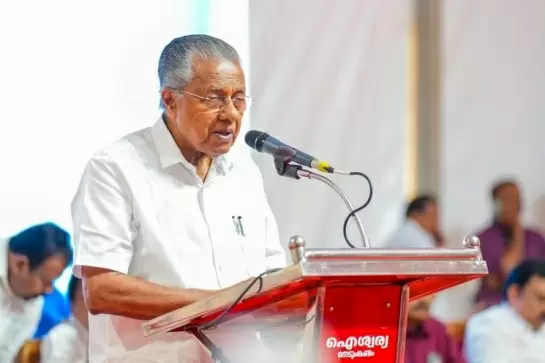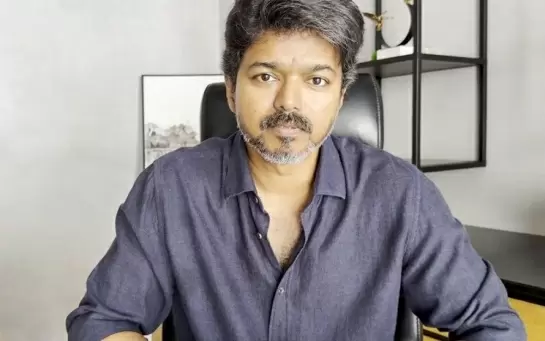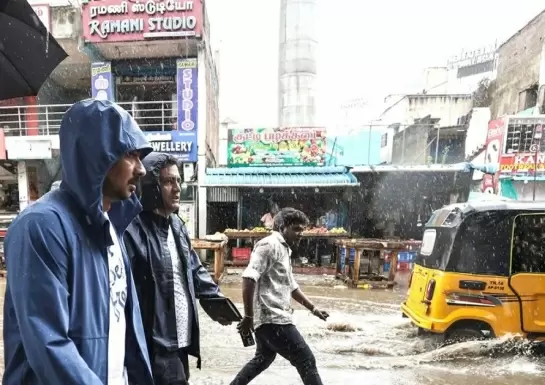Jaishankar meets Japanese envoys of South Asia
17-July-2019
In a significant move highlighting the growing closeness between India and Japan, External Affairs Minister S. Jaishankar held a meeting with the Japanese envoys of five South Asian countries, including Pakistan.
The External Affairs Minister tweeted a picture of the meeting. "Pleasure to receive delegation of Japanese Ambassadors to India, Sri Lanka, Nepal, Bangladesh, Pakistan, Maldives. Discussed advancing India-Japan cooperation & synergizing our Act East Policy," he wrote on twitter, with a picture of his meeting.
Japan, which is the only country that India has allowed into infrastructure projects in the northeast region, has announced investment of Rs 13,000 crore in various connectivity projects for the sensitive land-locked northeastern region. These include bridges, highways, water supply projects, buildings, sheds, godowns among others.
Japan's contribution to the North-East infrastructure projects comes as the government of Prime Minister Narendra Modi has been giving a massive push to develop the region, including through railway and air connectivity to integrate the region with the rest of the country.
Japan's participation in the North-East comes as a counter to China's growing clout in the Southeast Asian region, and in South Asia. Beijing has been gradually encircling India through its strategic 'String of Pearls', by building or heavily financing ports and bridges in India's immediate neighbourhood.
China and Japan share cool relations, though their trade relations are booming. The discord is mostly over the Senkaku islands in the East China Sea, which Japan says belongs to it, but Beijing has been trying to occupy. Though both sides have overtly buried the hatchet, the islands issue among other irritants, has the potential to flare up.
Japan's role in development work in the North-East will also help in boosting connectivity between the member-states of the Bimstec sub-regional grouping - or the Bay of Bengal Initiative for Multi-Sectoral Technical and Economic Cooperation, which comprises the seven countries lying in the littoral and adjacent areas of the Bay of Bengal -- Bangladesh, Bhutan, India, Myanmar, Nepal, Sri Lanka and Thailand.
India has been stressing the importance of Bimstec grouping, of which Pakistan is not a part.
China has major infrastructure projects in Sri Lanka, including the Hambantota port, which Colombo has leased to Beijing in lieu of the massive debt it has run up.
In Bangladesh, its Prime Minister Sheikh Hasina during her visit earlier this month to Beijing, inked Belt and Road Initiative (BRI) projects worth nearly $21.5 billion that also include power and infrastructure projects. China's BRI-related investments in Bangladesh stand at around $38 billion.
In Maldives, the government of President Ibrahim Mohammed Solih is said to be reconsidering infrastructure projects inked during the reign of the pro-Beijing Abdulla Yameen government.
Maldives has said it owes China $3.4 billion as repayment for loans for projects undertaken during Yameen's rule.
In Nepal too, China has a massive presence, and is involved in building a cross-border railway line among others. Beijing has been actively wooing Kathmandu, in an effort to wean it away from traditional and cultural ally India.
Pakistan and China are all-weather allies and Beijing is building the massive $60 billion China-Pakistan Economic Corridor that cuts through Pakistan-Occupied Kashmir.
Japan and India are also part of the ambitious Asia Africa Growth Corridor project to connect with Africa -- which is seen as a counter to China's deep inroads into the mineral-rich continent.
Jaishankar's meeting with the Japanese envoys also comes as Japan has stressed on India's role as a global power to help in the realisation of a free and open Indo-Pacific region, where China has been flexing its muscles.
In November 2017, India, Japan, the US and Australia gave shape to the "Quad" Coalition to develop a new strategy for keeping the critical sea routes in the Indo-Pacific free of any influence.
The Indo-Pacific region comprises the Indian Ocean, and the western and central Pacific Ocean, including the South China Sea. China has laid claim to almost all of the South China Sea.
Prime Minister Modi and Japanese Prime Minister Shinzo Abe held a bilateral meeting in Osaka last month, on the sidelines of the G20. IANS
Mandhana, Rawal Smash Centuries as India Post 340/3 Against New Zealand
Massive Fire Breaks Out at Printing Press in North Kolkata, Amherst Street Printing Press
Mahagathbandhan Likely to Announce Tejashwi Yadav as CM Face Ahead of Bihar Polls
IndiGo Flight from Kolkata to Srinagar Makes Emergency Landing in Varanasi
Saudi Arabia Ends Kafala Sponsorship System, Benefiting 13 Million Foreign Workers









